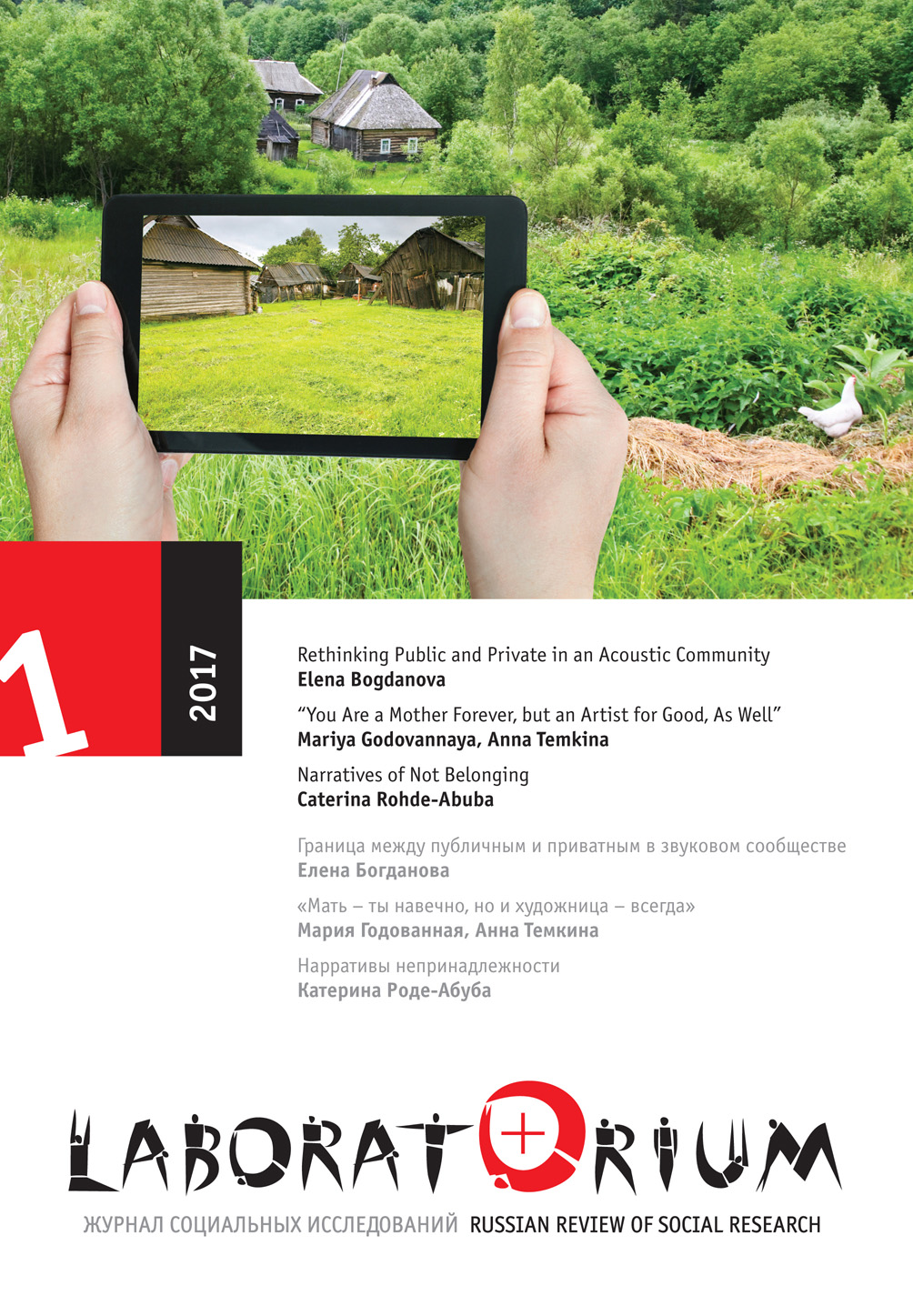Narratives of Not
Belonging: The Symbolic and Functional
Meaning of Language Use in the Relation
of Russian Au Pair Migrants to the Russian-
Speaking Community in Germany
Narratives of Not
Belonging: The Symbolic and Functional
Meaning of Language Use in the Relation
of Russian Au Pair Migrants to the Russian-
Speaking Community in Germany
Author(s): Caterina Rohde-AbubaSubject(s): Social Sciences
Published by: Центр независимых социологических исследований (ЦНСИ)
Keywords: Migrant community; Bilingualism; Au Pairs; Russian Migrants in Germany; Belonging; Boundary Making
Summary/Abstract: On the basis of theoretical approaches to ethnic group formation and belonging, thisarticle examines how Russian au pairs in Germany relate to the Russian-speaking migrantcommunity in the context of their migration processes. It shows how au pairsuse their bilingual skills as an emblem of identity but also as a tool to establish socialrelationships. At the beginning of their stay au pairs use their native language todraw on the Russian-speaking community, explore their host city, and get social supportduring their au pair year. In later stages of settlement au pairs, who may enrollin university or enter highly skilled work, emphasize social relationships with Germancitizens and migrants of the same socioeconomic background. In biographicalnarratives they seek to distance themselves from the Russian-speaking communityby creating intragroup boundaries and rejecting interest in speaking Russian or socializingwith Russian speakers. They use their German-language skills as markers ofeducation and upward mobility in order to position themselves as members of societywithout any of the negative attributes commonly ascribed to members of the Russian-speaking community.
Journal: Laboratorium. Журнал социальных исследований
- Issue Year: 9/2017
- Issue No: 1
- Page Range: 62-81
- Page Count: 20
- Language: English

